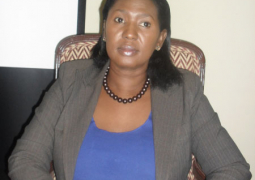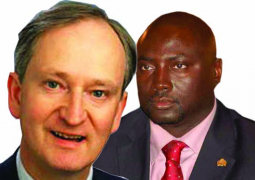When the case was called, DPP SH Barkhum told the court that the case was for continuation of testimony by PW2, Sulayman Jatta.
Jatta told the court that when they got to the gate at July 22nd Square in Banjul, the accused took him, Sheikh and Assan Ndoye and they climbed up the pavilion and were given seats.
They sat down and watched the wrestling match that was going on in the square, he said, adding that after a while, the ministers and the President arrived.
Sabally then called Ndoye and introduced him to the President, he said, adding that when Ndoye returned to his seat, he (the witness) asked him what he said to the President and Ndoye said he told the President that he wanted to work with him.
He then asked Ndoye whether he had spoken to the President about the vehicles, and Ndoye told him the President said he had been informed about the vehicles, but had not seen them yet.
Jatta said they continued to watch the wrestling match until around 1 a.m. and, when they were leaving the square, the accused person told them they could go with the vehicles and come the next day, because it was late.
He said the next day, he went with Ndoye and Sheikh together with the vehicles to State House.
They packed the vehicles and went to see the accused in his office, where they sat at the reception.
After a while, the Minister of Tourism at the time, Fatou Mass Jobe, came and entered Sabally’s office with Ndoye, while he and Sheikh waited at the reception.
When Fatou Mass Jobe came out of Sabally’s office, Sabally called him and Sheikh into his office and told them that Ndoye said he could only do in Senegal what he had asked him (Ndoye) to do.
At that juncture, the trial judge asked the witness what was it that the accused asked Assan Ndoye to do, which he said he could not do in The Gambia.
The witness said Ndoye said he could bring African Americans to attend the Roots Homecoming Festival, and it was that programme Ndoye was going to organize in Senegal.
He said they left Sabally’s office, left the vehicles at State House and went home.
They left the vehicles in the custody of Sabally, and the next day he and Ndoye went to Fatou Mass Jobe’s office in Banjul.
He (the witness) sat at the reception, while Assan entered the office of Fatou Mass Jobe. After a while, Ndoye came out and he took Ndoye to the ferry terminal for him to go home.
While Ndoye was in Senegal, he used to communicate with him and Ndoye complained that both Fatou Mass Jobe and Sabally were not responding to his calls.
Later, Ndoye came back to The Gambia with the proposal of the vehicles, and he went with Ndoye to see Sheikh, and the proposal of the vehicles was handed to Sheikh to give to Sabally before Ndoye left for Senegal.
Ndoye came back for the third time, but they could not see Sabally because he had travelled.
When Assan came back for the fourth time, he found out that Sabally was no longer the Secretary General and Minister for Presidential Affairs.
Ndoye then went to see the Senegalese ambassador who summoned him and Sheikh, and when Ndoye explained everything to the ambassador, the ambassador told him he could not help him because when he was coming to The Gambia with the vehicles he did not tell him.
He said that when they went to see Sabally, they told him the vehicles were for sale.
Under cross-examination, senior counsel A.B. Gaye asked the witness to tell the court how many statements he made to the NIA and the police regarding the case. The witness said he made only one statement.
“When the Tourism Minister Fatou Mass Jobe left the accused’s office, who and who were invited into the accused office?” asked the counsel.
“When Fatou Mass Jobe left, I was invited along with Sheikh to the accused’s office,” responded the witness.
The case continues on 13 May 2015.
Read Other Articles In Article (Archive)
Editor Jobe makes no-case-to-answer submission
Nov 11, 2013, 9:53 AM




